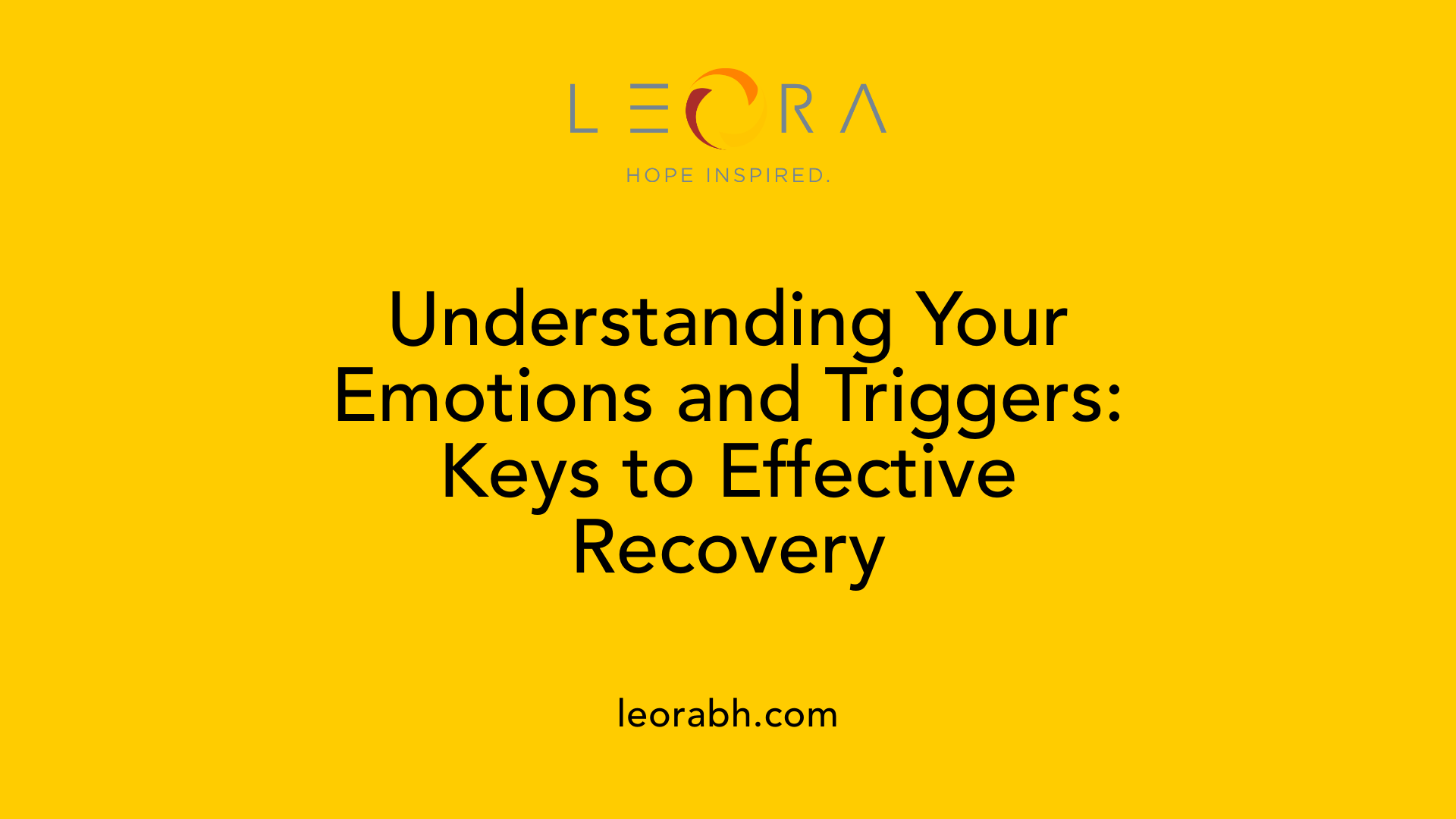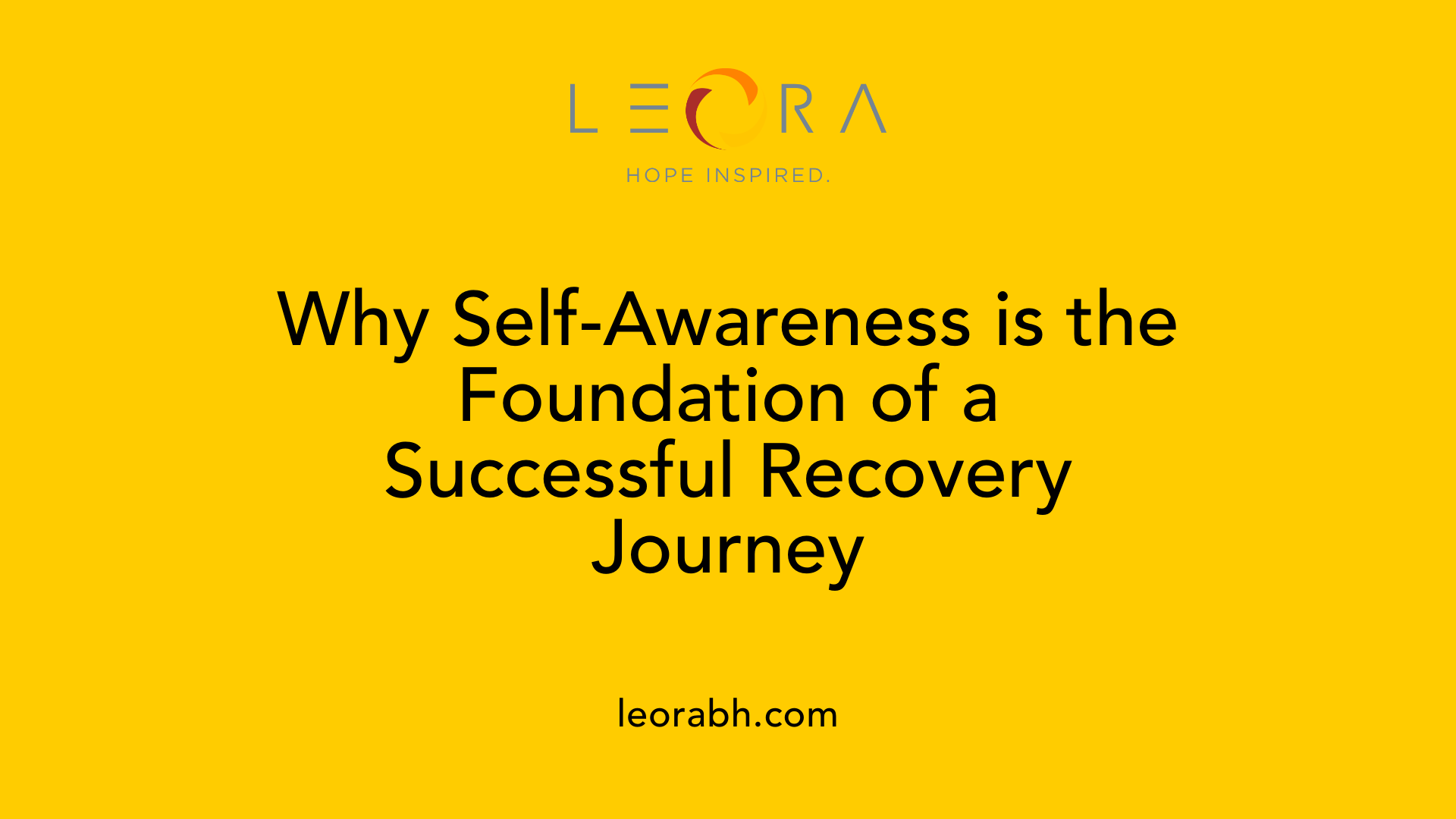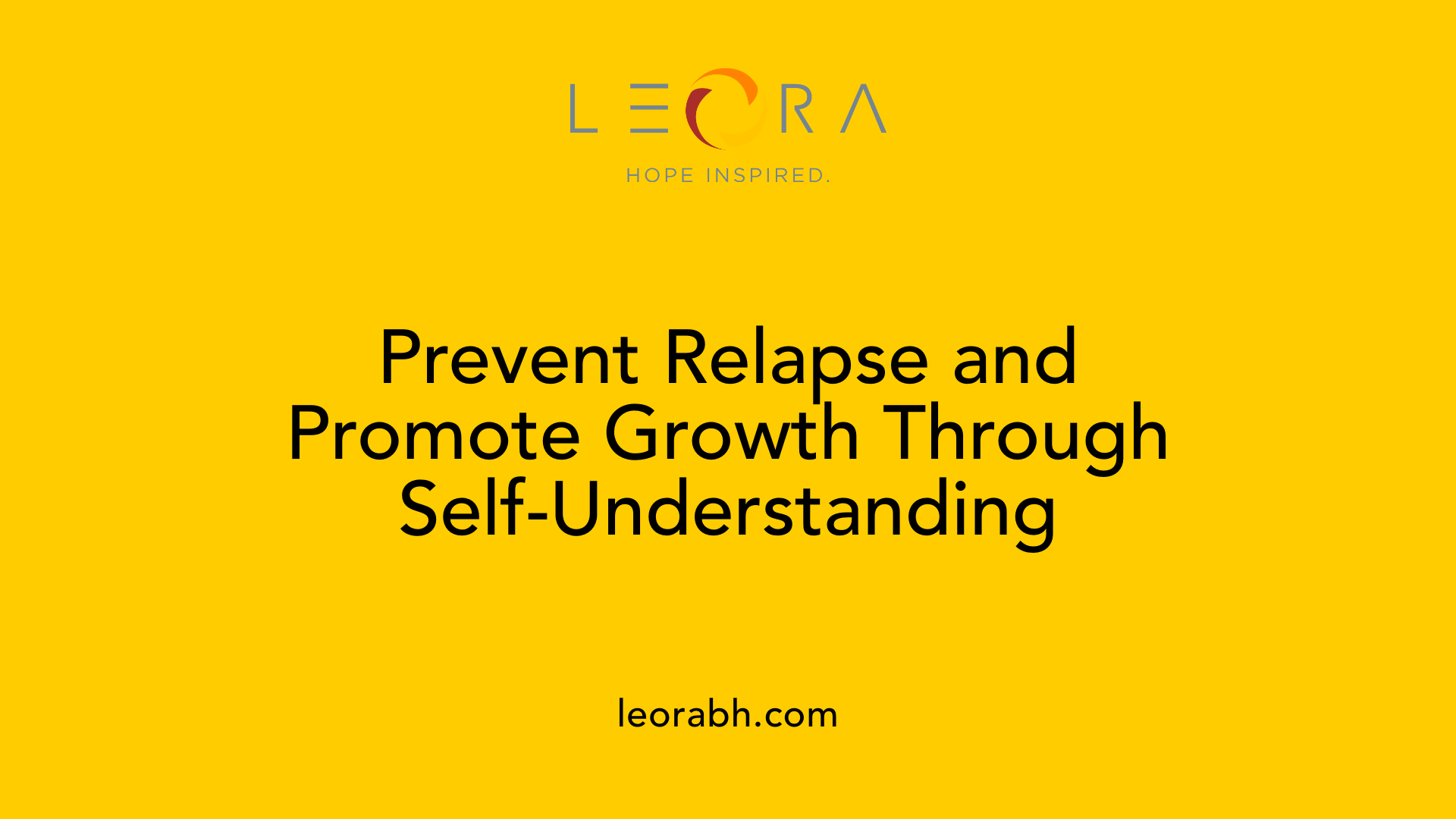Why Self-Awareness Is Empowering in Recovery
The Power of Self-Discovery in Healing
Understanding the Critical Role of Self-Awareness in Recovery
Recovery from addiction and mental health challenges is a complex journey that requires more than just abstinence or symptom management. Central to this process is self-awareness—a profound understanding of oneself that empowers individuals to navigate their recovery with clarity, honesty, and resilience. This article explores why self-awareness is a vital, empowering element in recovery, highlighting strategies to develop it and its lasting benefits on personal growth and relapse prevention.
The Fundamental Importance of Self-Awareness in Recovery

What is the importance of self-awareness in recovery from addiction and mental health challenges?
Self-awareness plays a critical role in the journey of overcoming addiction and related mental health issues. It involves having a clear understanding of one’s emotions, thoughts, motivations, and behaviors. This understanding allows individuals to recognize the emotional triggers that initiate cravings or distress, providing early insight into potentially harmful patterns.
By cultivating self-awareness, individuals can actively oppose denial, which is common in addiction. Denial can hinder progress because it prevents acknowledgment of the problem. The ability to face the reality of one’s situation promotes honesty and transparency with oneself and others.
Building self-awareness encourages accountability, meaning individuals become responsible for their actions and understand how these actions affect their relationships and overall well-being. It empowers them to make informed decisions aimed at recovery.
Practices such as mindfulness, journaling, participating in therapy, and engaging in support groups are effective in enhancing self-awareness. These tools help people identify early warning signs, understand their emotional responses, and manage triggers more effectively.
Research in neuroscience also supports the importance of self-awareness, showing that improving it can normalize brain functions involved in self-processing. This normalization helps strengthen emotional regulation, resilience, and empathy—key factors for sustained recovery.
In summary, self-awareness is fundamental because it directly impacts a person’s ability to recognize and control triggers, foster honesty, promote accountability, and understand the effects of their actions. These elements collectively support healthier decision-making and long-term sobriety.
Strategies and Methods to Cultivate Self-Awareness

What methods and strategies can help develop and enhance self-awareness in recovery?
Developing self-awareness is a vital step in recovery, involving various practices that foster a deeper understanding of oneself. One effective approach is engaging in mindfulness exercises. Techniques such as breath awareness, body scans, and guided meditations encourage individuals to observe their physical sensations and emotional states without judgment. These practices help maintain presence, reduce stress, and increase insight into personal triggers.
Journaling and reflection are also powerful tools. By regularly writing about feelings, thoughts, and behaviors, individuals can identify patterns and recognize specific triggers that lead to cravings or negative emotions. Tracking these over time reveals insights that might otherwise be overlooked and promotes honest self-assessment.
Therapeutic techniques like Cognitive Behavioral Therapy (CBT) and Dialectical Behavior Therapy (DBT) are designed to increase awareness of thought and emotional patterns. CBT helps individuals recognize distorted thinking that influences their behaviors, while DBT emphasizes mindfulness and emotional regulation skills. These therapies support clients in understanding the root causes of their actions and developing healthier coping mechanisms.
Recognizing and managing triggers is crucial for preventing relapse. This involves mapping thought patterns, tracking emotional responses, and understanding environmental cues that activate cravings or harmful behaviors. Early intervention strategies, such as pausing and analyzing emotional states, empower individuals to respond consciously instead of reacting impulsively.
Seeking feedback from trusted individuals can enrich self-awareness. Honest input from friends, family, or support groups offers perspectives that might be hard to see alone. Clarifying core personal values and aligning actions accordingly provides a strong foundation for sustained recovery, helping individuals make choices rooted in authenticity and purpose.
Integrating these strategies—mindfulness practices, journaling, therapy, trigger management, and feedback—creates a comprehensive approach to building self-awareness. Promoting continuous self-reflection supports personal growth, stronger decision-making, and healthier relationships, all of which are key components of lasting recovery.
The Role of Self-Awareness in Successful Recovery Programs

Why is self-awareness considered a crucial element in successful recovery programs?
Self-awareness plays a vital role in recovery because it helps individuals understand the core reasons behind their addiction. Recognizing feelings, thoughts, and triggers allows for proactive management of urges and avoidance of relapse.
When someone develops a clear picture of their emotional and behavioral patterns, they can identify negative beliefs or tendencies that surface before relapse. For example, understanding that stress or certain environments trigger cravings enables more effective coping strategies.
Practicing techniques like journaling, mindfulness, and self-monitoring enhances this awareness. These tools foster honest reflection and help individuals observe their thought processes and emotional responses.
By being self-aware, individuals take responsibility for their actions and are more accountable for their recovery journey. They can recognize early signs of distress or destructive thoughts and intervene before harm occurs.
This heightened awareness not only promotes emotional resilience but also encourages personal growth. People feel more empowered to face challenges, make informed decisions, and develop healthier habits.
The culmination of these factors strengthens the foundation of recovery, making it sustainable in the long run. Overall, self-awareness equips individuals with the insight needed to manage their recovery actively and confidently.
Self-Awareness as a Tool for Relapse Prevention and Personal Advancement

How does self-awareness contribute to relapse prevention and personal growth?
Self-awareness plays a vital role in preventing relapse and fostering personal development. It allows individuals to recognize early warning signs, emotional triggers, and recurring behavioral patterns that might lead to substance use. By being attuned to their internal states—such as feelings, thoughts, and physical sensations—people can identify moments when they are most vulnerable.
Developing self-awareness involves techniques like mindfulness meditation, journaling, and therapy sessions, which help in observing one’s emotional responses and thoughts objectively. When individuals understand what specific triggers—such as stress, certain environments, or social pressures—activate cravings, they can implement proactive coping strategies. For example, taking deep breaths, engaging in alternative activities, or reaching out to a support person can make a significant difference.
Moreover, self-awareness enhances decision-making, emotional regulation, and relationship management. These skills enable individuals to handle stressful situations and emotional upheavals more effectively, reducing the risk of relapse. As part of ongoing recovery, cultivating a deeper understanding of oneself encourages accountability, promotes honest reflection, and supports continuous adaptation of personal recovery plans.
This process also empowers individuals to navigate challenges more confidently, maintain sobriety, and foster growth. Over time, the practice of self-awareness nurtures resilience, helps in recognizing the roots of emotional responses, and bolsters the motivation needed for lasting change. Ultimately, a committed pursuit of self-awareness ensures a pathway toward sustained recovery and genuine personal advancement.
Building Emotional Resilience and Empathy Through Self-Awareness

How does self-awareness help in strengthening emotional regulation?
Self-awareness plays a vital role in developing emotional regulation. By understanding your emotions—what triggers them and how they manifest—you can respond more thoughtfully instead of reacting impulsively. Practices like journaling, mindfulness, and meditation enable individuals to observe their feelings objectively, creating space to choose healthier responses. This ongoing process helps reduce stress, manage anxiety, and maintain emotional stability, which are all crucial in avoiding relapse during recovery.
How does understanding others’ struggles foster empathy?
Gaining self-awareness enhances your capacity to understand and relate to others. When you recognize your own challenges and vulnerabilities, it becomes easier to see others’ experiences without judgment. Increased empathy allows for more authentic connections, supporting a supportive environment for recovery. Recognizing that struggles are part of the human experience encourages compassion, making it easier to build trusting relationships that are essential for long-term sobriety.
In what ways can self-awareness foster authentic relationships?
Self-awareness helps individuals to communicate honestly about their needs, boundaries, and feelings, which forms the foundation of genuine relationships. When you understand yourself better, you are less likely to live in false pretenses or mask your true self. Authenticity builds trust and mutual respect, strengthening personal relationships. This honest connection provides a secure support system that is vital in recovery, encouraging accountability and shared growth.
Below is a summary table illustrating these aspects:
| Aspect | Role in Recovery | Specific Benefits |
|---|---|---|
| Strengthening emotional regulation | Enables thoughtful responses | Reduces relapse risk, improves mental health |
| Understanding others’ struggles | Builds empathy | Fosters compassion, reduces feelings of isolation |
| Fostering authentic relationships | Promotes honesty and trust | Creates strong support networks, supports sustained sobriety |
Self-awareness is an ongoing journey that enhances emotional resilience and nurtures genuine connections, making it a cornerstone of successful recovery.
The Continuous Journey of Self-Discovery in Recovery
Practicing patience and persistence
Recovering from addiction is a gradual process that requires patience and consistent effort. Building self-awareness doesn’t happen overnight; it involves regular practices like journaling, mindfulness, and self-reflection. These activities help individuals observe their thoughts, feelings, and triggers over time, fostering deeper understanding. Staying committed to this inner work allows recovery to become more sustainable, helping individuals develop resilience and a positive outlook.
Maintaining ongoing self-awareness
Self-awareness is not a one-time achievement but an ongoing practice. It involves continually checking in with oneself, being present in the moment, and understanding emotional responses to different situations. Techniques such as meditation, active listening, and seeking feedback in therapy are useful tools. This sustained effort enables individuals to recognize new triggers, understand evolving motivations, and adjust behaviors accordingly, reducing the likelihood of relapse.
Recognizing personal growth
As individuals deepen their self-awareness, they notice tangible signs of growth. These can include greater empathy for others, improved decision-making, increased accountability, and a stronger sense of independence. Personal insights often lead to healthier relationships and a more authentic life. Celebrating these milestones encourages motivation, reinforcing the importance of continuous self-discovery in recovery. By embracing this ongoing journey, individuals not only stay aligned with their recovery goals but also foster a resilient, hopeful outlook for the future.
| Aspect | Description | Example |
|---|---|---|
| Patience | Recovery takes time | Regular journaling helps track progress over months |
| Persistence | Consistent effort is needed | Daily mindfulness exercises reinforce self-awareness |
| Growth | Recognize your development | Feeling more empathetic towards others |
This ongoing process of self-discovery empowers individuals to navigate recovery with confidence, fostering a resilient mindset that supports long-term sobriety and personal well-being.
In Summation: Empowerment Through Self-Awareness
Ultimately, self-awareness acts as a cornerstone of successful and sustainable recovery. By fostering honesty, emotional regulation, and resilience, individuals are better equipped to face challenges and sustain long-term sobriety. Developing this self-insight is an ongoing process that involves mindful practices, reflection, and seeking support. As individuals deepen their understanding of themselves, they unlock personal growth, empathy, and the capacity to build healthier lives—a truly empowering journey of self-discovery.
References
- The Importance of Self-Awareness in Recovery
- Five Reasons Self-Awareness Is Important in Recovery
- Meet the Real You: Self-Awareness in Addiction Recovery
- Self-Awareness & Emotional Resilience Reduce Risk of Relapse
- Why Self-Awareness Is Essential to Addiction Recovery
- The Power of Self-Awareness in Recovery: A Personal Journey
- Addressing the Self: The Importance of Self-Awareness for Healing
- Why Recovery Begins with Self Awareness
Find Your Inner Light
Related Articles
Schedule an Assessment
Leora Behavioral Health provides comprehensive treatment services, including ambulatory detox, mental health IOP, and SUD IOP, to support your journey toward lasting recovery.
Our caring team will guide you through the admissions process and create a personalized treatment plan tailored to your unique needs. We welcome walk-ins. If you or a loved one is struggling, reach out today. We’re here to help.


.svg)




.svg)
.svg)
.svg)
.svg)
